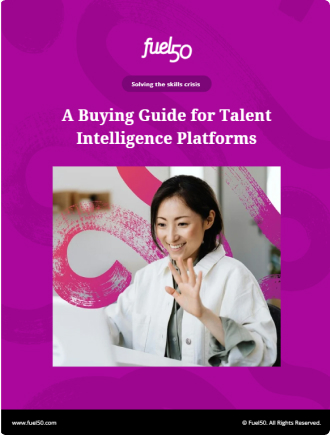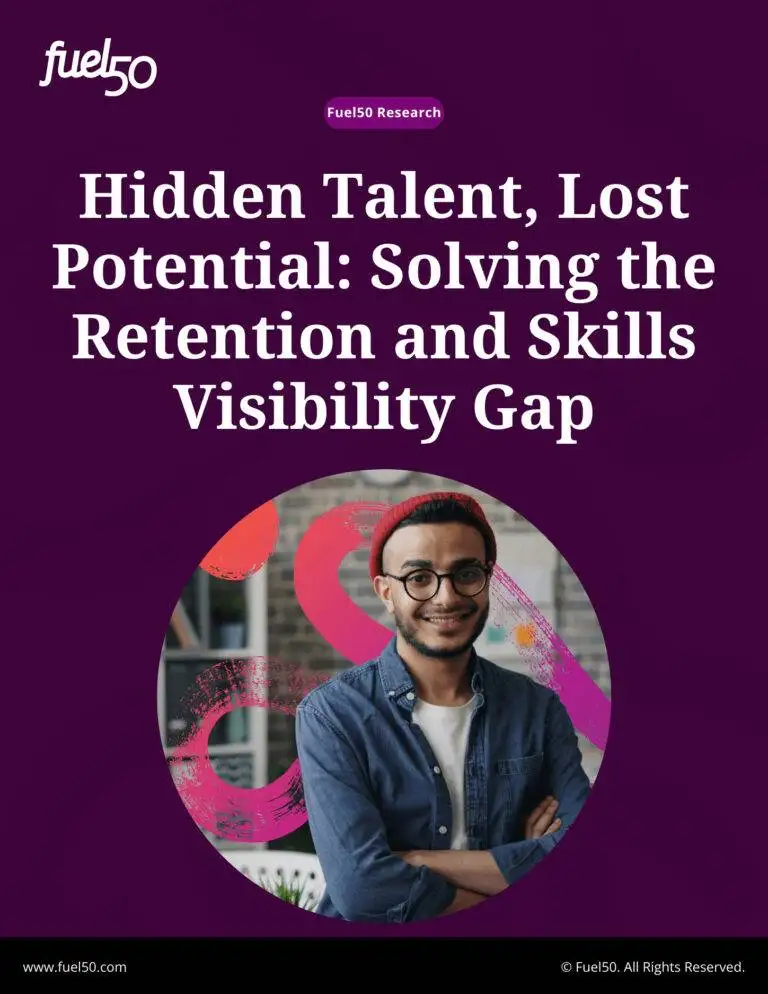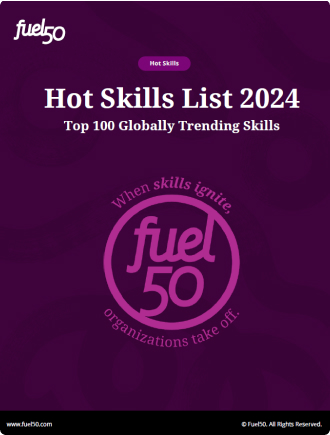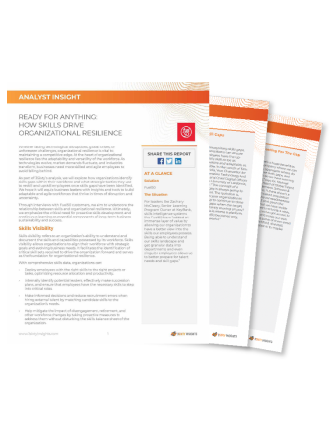Future proofing yourself against the impact of artificial intelligence (AI) is top of mind for many. Let’s consider what opportunities lie ahead and how to remain relevant in the rise of AI.
There are two primary responses to innovation or change affecting the workplace. The first is a natural fight or flight response, where we either resist the change, avoid or deny it. The second type of response, driven by an opportunity mindset, embraces technology advancements as a chance for development and growth. It recognizes that an iRobot-like outcome where dysfunctional robots develop an affinity for causing harm to humans is a rather unlikely occurrence. An opportunity mindset focuses on the positive change that artificial intelligence is bringing, now and in the future, to the workplace – focusing on the rise of AI as being more likely to result in improved efficiency, accuracy, and an enhanced customer experience. And no, this is not just the opinion of ChatGPT!
Goldman Sachs recently reported that over 300 million1 jobs will be impacted by AI, at least to some extent. However, it is encouraging to see that leaders and industry experts2 are beginning to see the benefit of AI for those jobs likely to be impacted the most by this revolutionary technology. More so, business leaders are indicating that this could be a terrific opportunity for many professional roles to become more strategically focused, with AI automating repetitive, time-consuming tasks.

AI has been a growing presence in our lives since the 1950s3, but recent advancements, like generative pre-trained transformer (GPT) tools such as ChatGPT or GPT-4, have brought exciting possibilities for the future. While most jobs in nearly every field may be impacted by AI to varying degrees, it’s important to recognize that AI can enhance our work and lives by improving efficiency and automating repetitive tasks. AI can help us identify patterns in data that humans might miss and provide insights that can inform decision-making.
In fact, AI is becoming increasingly advanced in its performance of sophisticated tasks. In 2016, Google’s AlphaGo AI defeated the world champion in the board game “Go”, which was once considered too complex for machines to master4. AI has recently been used to help solve complex scientific problems such as protein folding. Protein folding is the ability to predict how proteins fold from a chain of amino acids into 3D shapes and was a great unsolved scientific mystery for over 50 years until the AI system AlphaFold, developed by DeepMind, made significant breakthroughs in predicting protein structures in just 18 months5. In addition, AI systems have demonstrated superior performance in areas such as image and speech recognition, language translation, and even medical diagnosis6. AI has also been used to create original art and music that rivals that of human artists and even outperforms them in more recent examples7.
Rather than fearing the impact of AI, we can embrace the opportunities it brings to create new and more fulfilling work. In any industry or job, it’s important to stay adaptable and continue developing skills to stay ahead of the curve. By doing so, we can ensure that our careers are well-positioned to grow and thrive alongside the ongoing developments in AI.

It is worth noting that AI research is experiencing rapid growth and breakthroughs are happening almost every month. Although we cannot rule out the possibility of future advancements that allow AI systems to perform tasks that involve skills such as creativity and critical thinking more effectively, for now, there are still many areas where human intelligence surpasses that of AI.
Therefore, the best way to remain relevant in the rise of AI is to invest in developing the skills and capabilities that remain shortcomings of AI / GPT tools and learn to deploy and work alongside AI to enhance your effectiveness at work. Having a growth mindset and developing skills like empathy – connecting with another person on an emotional level and putting yourself in their shoes – and the ability to think creatively and use intuition, emotional intelligence, cultural context, and other innate human factors to solve problems and make decisions8, will help you prepare for the future and some of the new roles that are now emerging due to the developments in AI. These include9 Prompt Engineer, AI Trainer, AI Auditor, AI Ethicists and Machine Manager, to name a few.
In other words, spend time understanding the skill requirements for the future of work, and focus on upskilling to remain ahead of the curve.
Investec Data and AI Lead, Michelle Shonken, put it best when she said:
I think that AI will complement and augment human capabilities, not necessarily replace them. The machine’s ability to process and analyze large volumes of data quickly, which really remains impossible for humans to do, will complement our human strengths of empathy, leadership, teamwork, and social skills.
Here are some of the skills and capabilities we have identified from our propriety Fuel50 Talent Ontology™️ that individuals and leaders should focus on developing to remain relevant in the rise of AI. Also included are some organizational strategic imperatives, which highlight the skills needed from an organizational level to drive organization-wide change.

*Get in touch for more information and to find out the definitions of these skills and capabilities.
As Andrew Ng points out, “AI is the new Electricity”10. AI is changing how we live, work, and plan our careers. Rather than deny or downplay the impact, let’s embrace the opportunity it brings to create new and more fulfilling work and to develop the qualities that make us ‘us’. The irreplaceable human element in the human-machine teaming equation.
1. 300 million jobs could be affected by latest wave of AI says Goldman Sachs. CNN, Michelle Toh. https://edition.cnn.com/2023/03/29/tech/chatgpt-ai-automation-jobs-impact-intl-hnk/index.html. Accessed: 29 March 2021.
2. Will humans and AI play nicely?. Investsec, Jeremy Maggs. https://www.investec.com/en_za/focus/innovation/will-humans-and-ai-play-nicely-.html. Accessed: 12 April 2023.
3. The History of Artificial Intelligence. Harvard University, Rockwell Anyoha. https://sitn.hms.harvard.edu/flash/2017/history-artificial-intelligence/. Accessed 28 August 2017.
4. Google AI beats Go world champion again to complete historic 4-1 series victory. Tech Crunch, Jon Russell. https://techcrunch.com/2016/03/15/google-ai-beats-go-world-champion-again-to-complete-historic-4-1-series/. Accessed 15 March 2016.
5. The game has changed: AI triumphs at protein folding. Science, Robert F. Service. https://www.science.org/doi/10.1126/science.370.6521.1144. Accessed 4 Dec 2020
6. The impact of artificial intelligence in medicine on the future role of the physician. National Library of Medicine, Abhimanyu, S.A. https://www.ncbi.nlm.nih.gov/pmc/articles/PMC6779111/. Accessed 4 October 2019.
7. Artificial Intelligences are quickly becoming better artists. Futurism, Roey Tzezana. https://futurism.com/85493-2. Accessed 6 October 2017.
8. Beyond algorithms: Skills of designers that AI can’t replicate. Lyndon Cerejo. https://www.smashingmagazine.com/2023/04/skills-designers-ai-cant-replicate/. Accessed 3 April 2023.
9. You’re hired: 5 new jobs created by AI. PC Mag Australia, Eric Griffith.
https://www.pcmag.com/news/youre-hired-5-new-jobs-created-by-ai. Accessed 7 April 2023.
10. The evolution of employment and skills in the age of AI. Zoë Baird, Joy Buolamwini, James Fallows and Andrew Ng. https://www.mckinsey.com/featured-insights/future-of-work/the-evolution-of-employment-and-skills-in-the-age-of-ai. Accessed 10 August 2017.
Written by Fuel50’s Workforce Architecture team
Contributors: Nicola Symington, Shelley-Ann Viljoen and Natalie Mabaso
Fuel50’s dedicated team of Workforce Architects and Industrial and Organizational Psychologists feed the Fuel50 Talent Ontology, train our ethical AI with Diversity, Equity, and Inclusion design principles at heart, and support best-in-class organizations using Fuel50 to transform and future-proof their talent strategy and workforce architecture.











